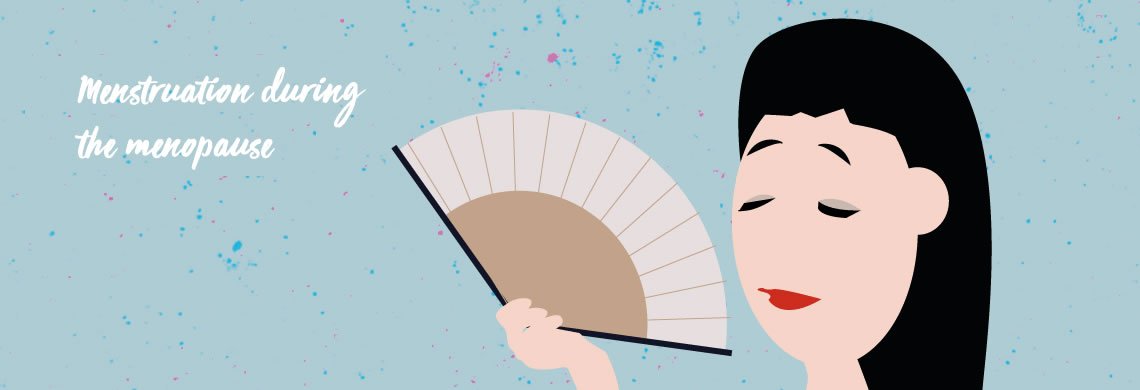
Your menopause and your period
Heart palpitations, hot flushes and a changing menstrual pattern – these signs and symptoms will sound familiar to many middle aged women reaching the menopause. Some lucky women experience fewer symptoms than others, but for others the symptoms caused by the changing hormone levels during menopause can be severe with the symptoms taking their toll.
Menopause, what exactly is it?
Most women think of the menopause as something that happens over time, but the menopause itself is actually the moment a woman has her last period, so lasts a single day. The time before menopause is known as peri-menopause with the time afterwards knows as post-menopause.
Menstruation problems during the menopause
About 8 in every 10 women will experiences symptoms during peri- and post-menopause.[1]NHS Choices. Menopause Changes. Last accessed 15 Aug 17 Often, your period is one of the first things to change during peri-menopause. For some women, this means their periods are shorter, while conversely, for others its means they have heavy periods with excessive bleeding. This is because in the first instance, levels of oestradiol (a female sex hormone) drop and subsequently, the production of the hormones oestrogen and progesterone in the ovaries declines. These changes in hormone levels disrupts the development of the endometrium (the lining of the womb), amongst other things, and can cause periods to be missed, to worsen, and finally, to stop.
- Missed or light periods
At the start of the peri-menopause, production of the hormone progesterone declines. This may mean that periods stop for a while, are very light or very short.
- Heavy periods
As progesterone levels drop further and hormone production becomes increasingly irregular, more mucous membrane builds up in the womb (uterus). This can lead to heavy bleeding during your period. For some women, it is so severe that they are out of action for a week during each menstrual cycle affecting their work, family and social lives. Fortunately, heavy periods now can be treated effectively so there is no need to hold on until menopause to get relief. Changing hormone levels are not the only cause of heavy periods. Your GP should be able to help identify other causes such as fibroids and discuss appropriate treatments with you.
- Prolonged periods
Irregular hormone production can also cause your periods to be longer than usual. This too is caused by declining levels of progesterone in the body, which usually regulates the duration and intensity of periods.
- Blood clots or bleeding between periods
You may also have blood clots during your period or spotting or breakthrough bleeding between your periods. In most cases, this is harmless, but could be caused by polyps in the womb or an infection. If you have any doubts about the cause, make an appointment with your GP.
- Periods stopping
As the menopause approaches, the gaps between your periods will become longer and eventually, they will stop completely. If you have not had a period for a year, you have definitely had the menopause.
Surviving the Menopause
An active and healthy lifestyle, that is getting exercise and eating healthily can help to manage the symptoms around your menopause. If you have mood swings, low mood and anxiety, self-help measures such as getting plenty of rest, doing regular exercise and relaxing activities such as yoga can help.[1]
If both physical and mental symptoms are affecting your life, make an appointment to see your GP and find out what could help you.




